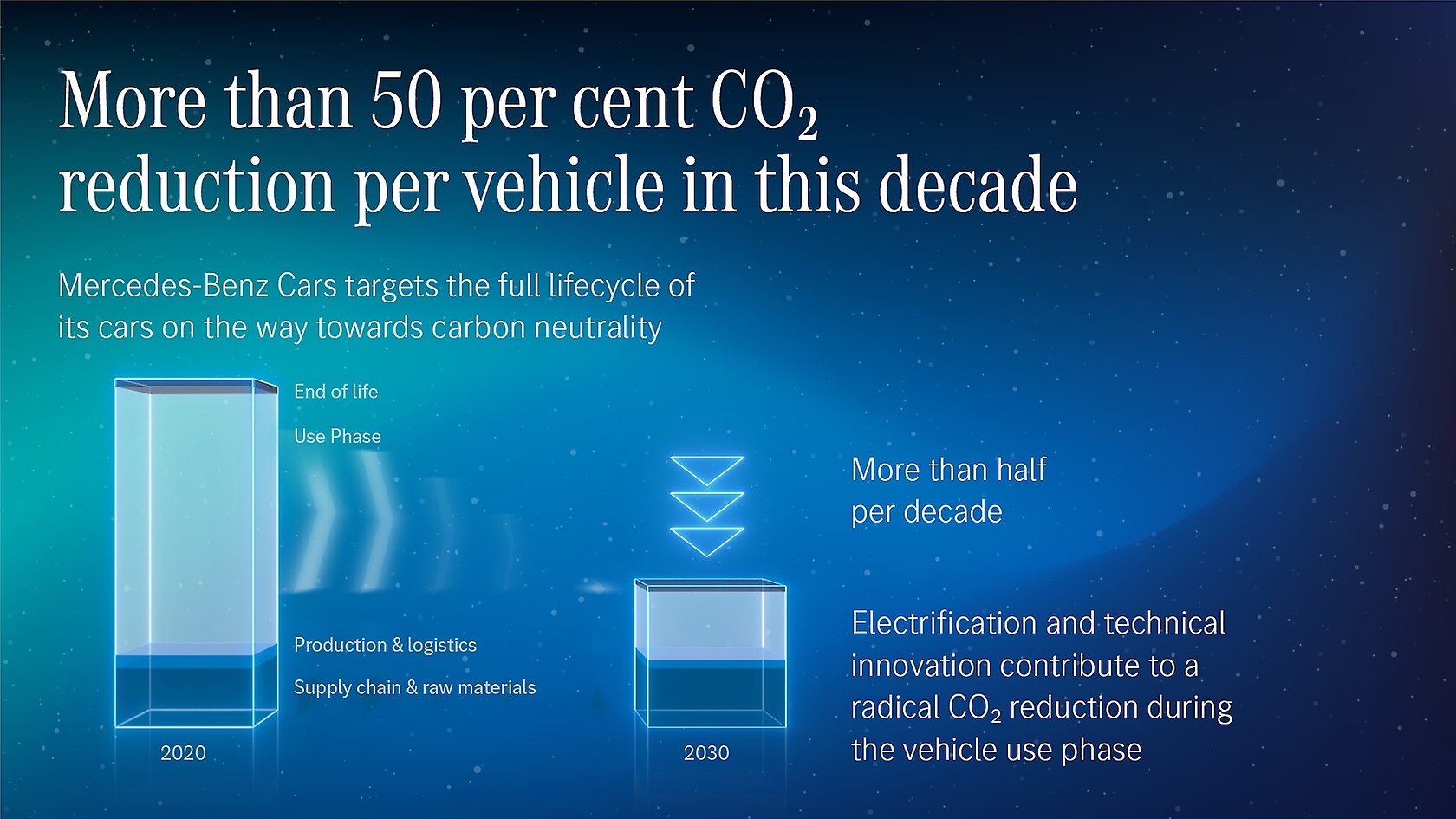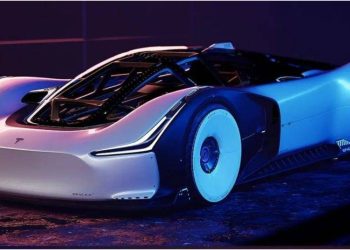As part of its sustainable goals for the future, Mercedes-Benz announced a series of plans and procedures to be followed to reduce carbon emissions by up to 50%, going beyond electric vehicles to encompass all factory activities.
One of the objectives will be to halve the footprint generated by cars by 2030, as part of the process that seeks to achieve zero emissions. However, despite focusing on electrification, the steps that the German manufacturer will take will extend beyond just producing models of this type.
Specifically, there will be five: electrification, sustainable energies, reducing emissions when assembling batteries, using renewable energies to manufacture cars and increasing the process and use of recycling. By 2030 they expect to sell only electrified vehicles, while by 2025 they project to obtain 50% of their revenues from hybrids and electric vehicles.

Related content | Mercedes-Benz on Electric Cars: “Prices will not come down any time soon”
Batteries will play a key role in the path that Mercedes poses for eight years from now. Reducing emissions during the manufacturing process is one of many topics that both the Germans and other manufacturers are studying. At the same time, increasing energy density would be an advantage for customers who opt for electrification, since they would have a car that will travel more kilometers at a lower cost.
“The desire for individual mobility continues to grow. Our mission is to meet this need in a sustainable way. Mercedes-Benz has a clear roadmap on how to become carbon neutral,” said Ola Källenius, Chairman of the Board of Management of Mercedes-Benz, via the Environment, Social and Governance (ESG) digital conference.

On the other hand, 70% of energy needs in production will have to come from renewable energy by 2030. Using steel, environmentally friendly aluminum, and other materials being manufactured by Mercedes will contribute to meeting the brand’s sustainable goals.
Vehicle seats will feature upholstery made from recycled PET plastic bottles, floor coverings made from reclaimed fishing line and carpet remnants. In fact, Mercedes EQS and EQE models will carry cable conduits made from landfill waste.

Last but not least, beyond sustainability, Mercedes has taken a step forward in gender equality and inclusion after announcing that 30% of senior executive management positions will be held by women by 2030.
Written by | Ronald Ortega












